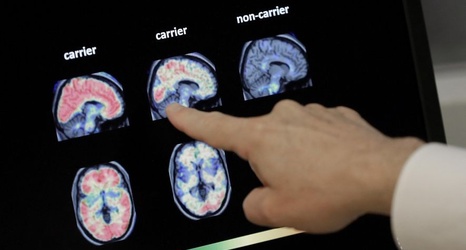The toll of the COVID-19 pandemic might have physically altered adolescents’ brains, Stanford University researchers said Thursday in an alarming report.
Researchers said brains seemed to age faster than normal in those who experienced the pandemic and its restrictions.
Typically, these accelerated changes in “brain age” only occur in children who experience chronic adversity from things like violence or neglect. Reports of anxiety and depression soared during the COVID-19 crisis in 2020 but the findings suggest physical changes, too.
“We already know from global research that the pandemic has adversely affected mental health in youth, but we didn’t know what, if anything, it was doing physically to their brains,” said Ian Gotlib, psychology professor and lead author of the paper published in Biological Psychiatry: Global Open Science.
